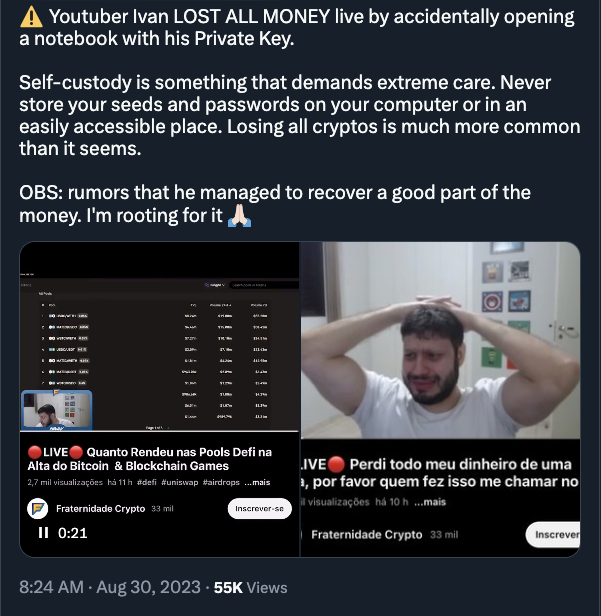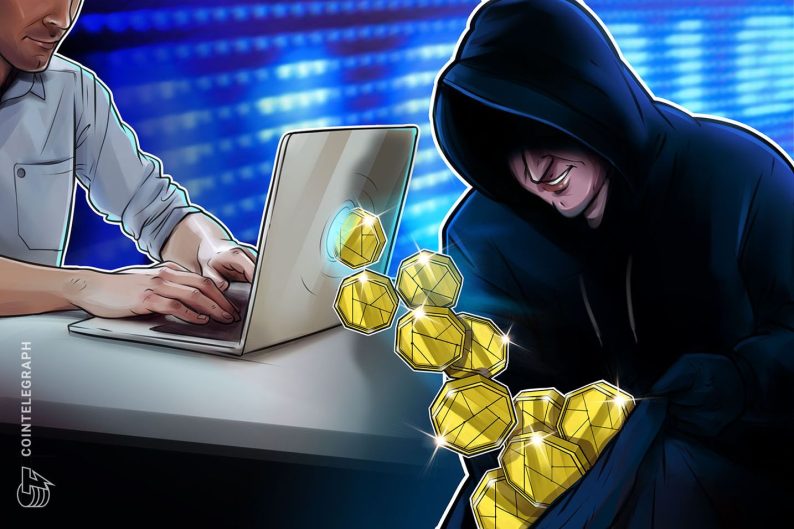Brazilian cryptocurrency streamer Fraternidade Crypto is one of the latest victims of unsafe self-custody practices, reportedly losing thousands of dollars due to a private key accident.
During a live stream on YouTube on Aug. 29, Fraternidade Crypto channel’s owner Ivan Bianco unwittingly exposed his private key to a self-custodial cryptocurrency wallet.
In the middle of the live stream related to Bitcoin (BTC) and blockchain games, Bianco apparently tried to access his passwords for the blockchain games platform Gala Games through a text file on his computer.
Unfortunately for the streamer, his Gala Games passwords were stored in the same text file as the seed phrase for his MetaMask wallet, which had a significant amount of Polygon (MATIC).
Shortly after accidentally opening the text file — which exposed two private keys for his cryptocurrency wallets — Bianco closed the live stream but apparently it was already too late to recover the funds for the streamer.
Fraternidade Crypto subsequently started a new live stream, claiming that one of his viewers managed to access his MetaMask wallet through the private key and stole his entire Polygon stash of 86,000 MATIC. At the time of the accident, the amount was worth around $50,000.
“I accidentally showed my private key live and the person had really quickly sent it to another address. I tried to close the broadcast and send crypto to another address but I was too late,” Bianco said in the emotional video that followed the accident.
In the video, the streamer provided the link to the Polygon address of the unknown perpetrator. The 86,000 MATIC stash then started to be transferred across different addresses.
Bianco claimed that he lost his entire life savings to the accident, pleading with the stream viewer to return the money for a reward. The YouTuber also said that he was planning to file a complaint to the local police, noting that about 70 people were watching his unfortunate live stream.
According to some online sources, Fraternidade Crypto might have managed to retrieve at leastsome of his funds so far. Local crypto executive Guilherme Rennó took to X (formerly Twitter) on Aug. 30 to report that there have been rumors that Bianco eventually managed to recover a “good part of the money.”
Related: 7 ways to safely store your private keys
“Self-custody is something that demands extreme care,” the exec noted, adding that crypto users should never store their seeds and passwords on their computers or in an easy accessible place.

While self-custody allows users to essentially “be their own bank,” such a method of holding crypto is still prone to many risks such as theft, destruction or loss. “Not your keys, not your coins,” is a popular expression in the cryptocurrency community that warns users about such risks. Once a self-custody wallet user gets a private key exposed to someone else, that user is no longer the owner of the funds, according to the rules of crypto.
Magazine: How to protect your crypto in a volatile market — Bitcoin OGs and experts weigh in



Leave A Comment